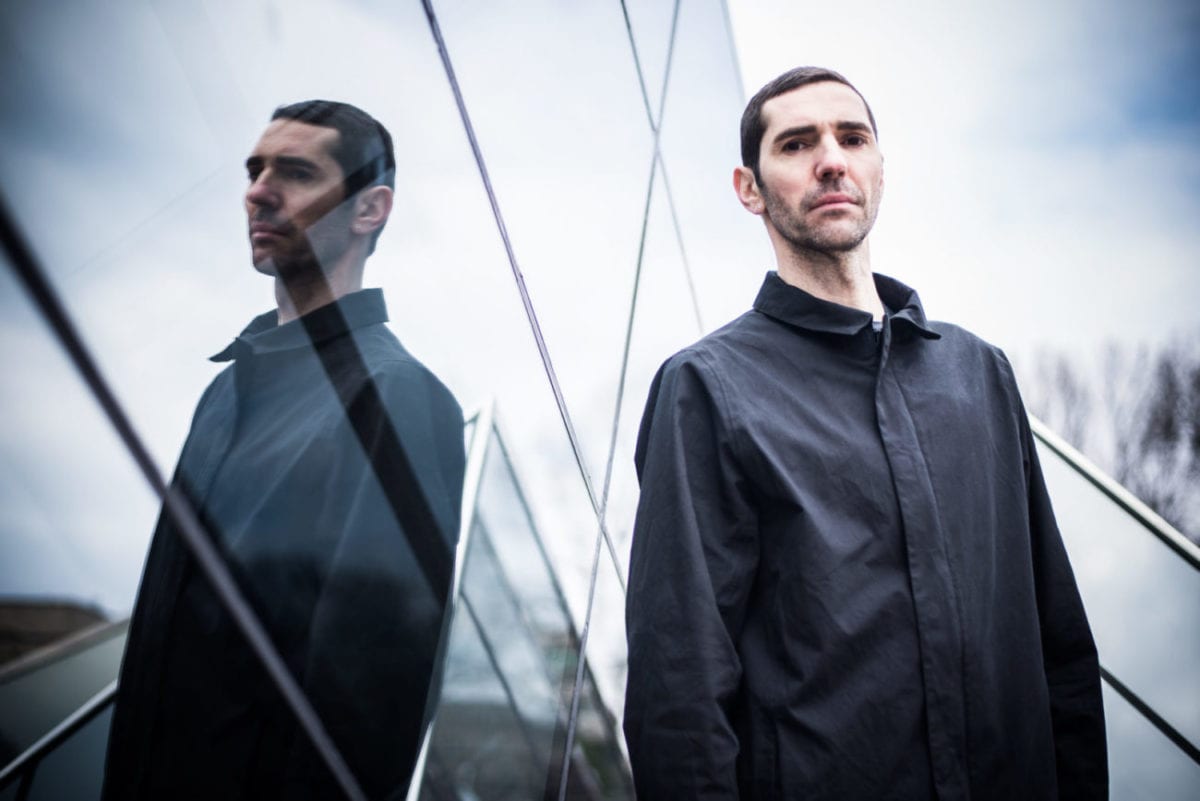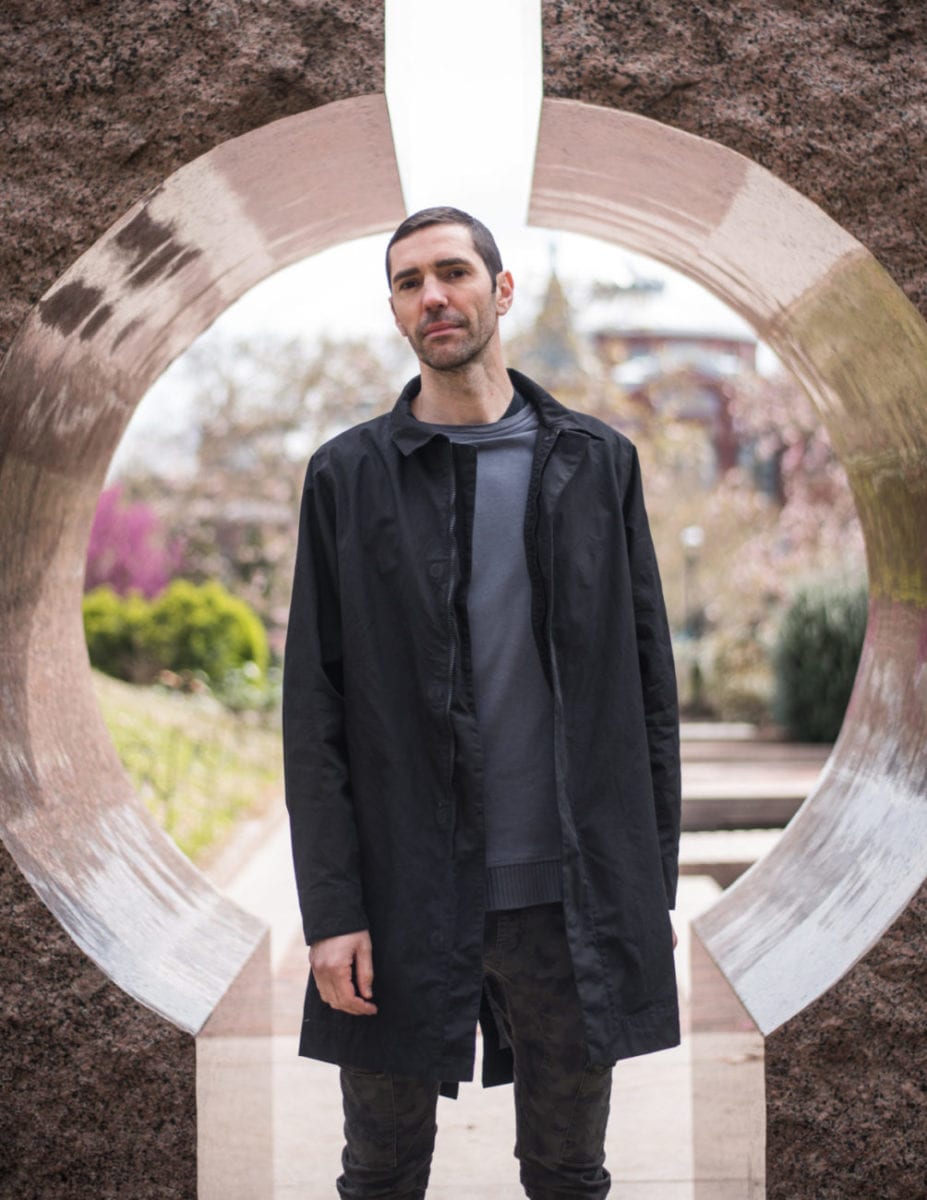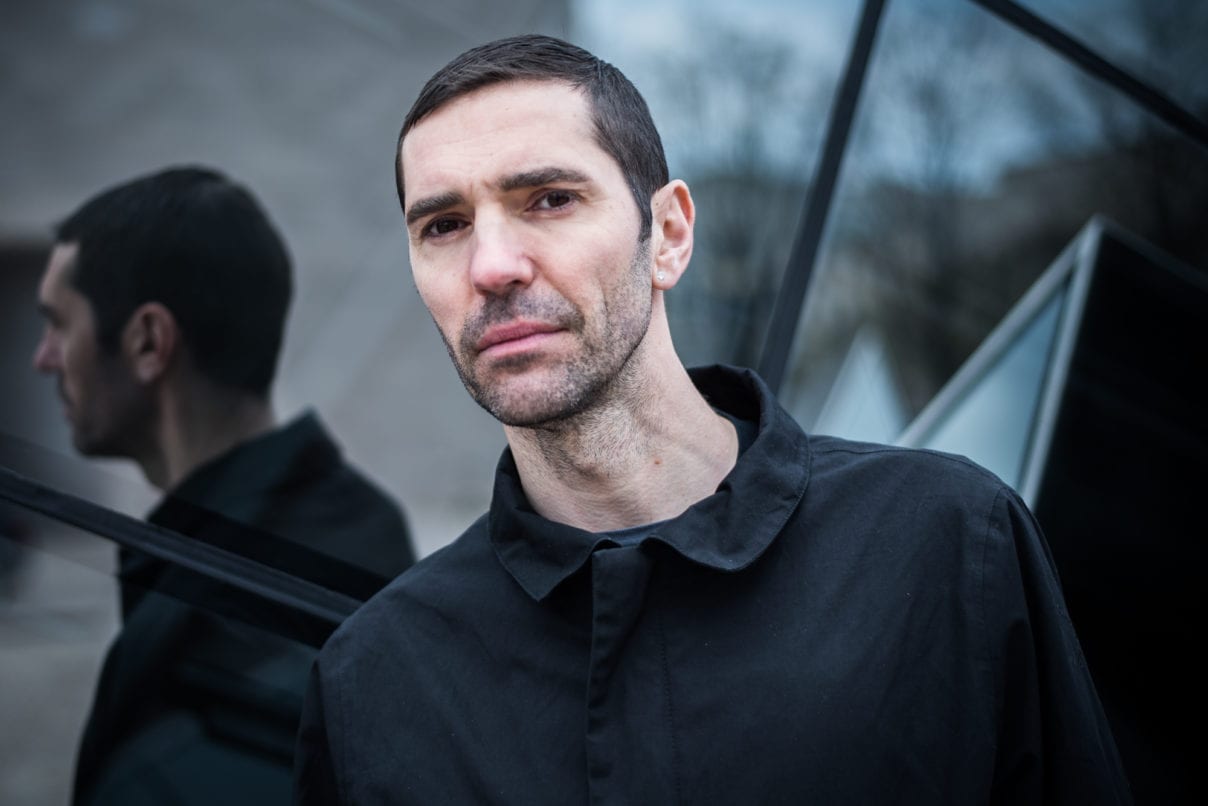
The legacy of the Dutch-born, D.C.-based artist Martyn had been solidified the moment that his 2009 debut LP “Great Lengths” was released – an inventive tapestry of snares, stabs and swathing melodies that captured the attention and imagination of the dancefloor and beyond. It is now 2018, and while his legacy has grown with LPs on Ninja Tune and a fervent catalog of releases on his own 3024 imprint; Martyn has taken a sizeable step towards a label he’s fond and familiar of with the release of his latest album “Voids”.
The venerable institution Ostgut Ton released the album last week, once again acknowledging their acute sensibilities towards the unique trappings and withholdings of the techno music genre; and with “Voids” it progresses even further. Martyn weaves between the sounds of Jamaica, South Africa and the UK to create a narrative that just might be his greatest work to date. The road to “Voids” was tough, as he dealt with a health scare and personal tragedies along the way, but the result that came out of his struggles brought a response that was both poignant and powerful. We spoke to Martyn about his record, his move to Ostgut Ton, the Washington Capitals and yes — Tiesto.
Interview by Mitch Strashnov Photography by Josh Sisk

"It seemed like this was the right time to connect with Ostgut Ton on something more long-term; and see how strong the connection could get."
Congratulations on Voids – the road to finally make this album happen was a challenging one. As mentioned previously in the lead-up to the release, you have dealt with personal loss and a serious health scare. Whilst things may have changed in terms of how you were hearing music and where you were gathering inspiration at the time, what were you grateful that didn’t change in your daily life, and were you glad that there was some level of normalcy to pull you through the rough seas you were wading through?
What didn’t change was the constant factor of having friends and family – a positive force of energy that can pull you through; of course a lot of things have changed for me, but not having those people around would’ve turned out terribly. I’m glad that the most important things stayed the same — what also stayed the same was my determination to do something, to get to the next goal. For me, that constant pursuance towards the next “thing” was extremely important, because I realised life itself is finite.
This album is the first one you’ve done for Ostgut Ton – a label you’ve released some material on over the years. What made Ostgut seem like the right fit for an album such as Voids?
The fact that I was already connected to the agency, club and label was a big reason – it’s interconnected in terms of people working between those different departments – all the wires crossing properly, so to speak. I feel like over the years Ostgut has been covering different strands of techno, and within the last year I think they’ve been delving a bit deeper with releases from Steffi, Answer Code Request and a few of their latest 12″ – it seemed like this was the right time to connect with Ostgut on something more long-term; and see how strong the connection could get.
This album feels stylistically more rigid and purposeful than your previous one – what were some of your influences that drew you to making clangers such as “Nya” and “Voids Two” on the record?
All my music is rhythmically-influenced and adventurous in terms of percussion. What’s new within the last couple of years has been the absorption of religious and tribalistic music; some music from Indonesian and Jamaica that were comfortably hypnotic.
In terms of more recent sounds, I would say Kuduro and GQOM were highly influential – stuff like that is pounding but not perfunctory. I started this album with the rhythm section and wrote the music on the top – in earlier stuff I’d start with stabs and melodies and build the beat around that; but in this polyrhythms were the foundation and everything else was added after the fact.
With your very visible love towards the world of jazz, you threw in a light piano diddy on the album in “Try To Love You” – it’s reminiscent of a previous intro to a tune you put out before on Ostgut Ton, “Falling For You” – do you feel like having that breath, that chance to collect oneself during the experience of listening to an album is important for you to capture?
Not necessarily. I didn’t make that tune as part of the album initially, I just wrote it as a stand-alone tune. I do a lot of stuff with piano because it sounds lovely, and it’s an all-encompassing, all-purpose instrument – because of those 88 keys you could really create a whole song. I try and do everything on piano beforehand – doing bass parts and solo to begin with; it really helps fine-tune my process.

"I think careers are built-up cyclically - you’re on top of the world one day and then you retreat for a while, the cycle can become vicious if you’re not careful."
The climate for touring DJs can be dangerous physically and mentally – as we’ve seen most recently with someone on a superstar level like Avicii; however even for DJs who are touring weekly or monthly, the toll of travelling from place-to-place can still be just as damaging. What has changed for you in terms of touring procedure since your health scare, and what are your thoughts on DJs speaking up on the rigors of a touring lifestyle?
It’s definitely important to state that my health scare wasn’t due to my DJ lifestyle, but it’s still very important to address one own’s physical and mental health. Over the last year I’ve been trying to take care of myself mentally, and within your travel schedule you should make time to breathe – and travelling long distances, like transatlantically presents challenges. Adding an extra day to decompress would be supremely beneficial.
I think careers are built-up cyclically – you’re on top of the world one day and then you retreat for a while, the cycle can become vicious if you’re not careful. Nowadays, you can see people who are up-and-coming perhaps taking too much because the gigs are coming in, and you can see talents who are only a year or two ahead being a bit smarter and acknowledging the cycle that they’re inhabiting. It’s important to know yourself and know your place within the community you inhabit, and it can benefit to the tiniest bit selfish – it’s your life after all.
Speaking of touring, you’re prepping a live set in accordance with Voids – what should people expect from the new live show?
I’m always trying to tell a story with my music – there’s an intro, body and closing portion – with the live set that body of the story is made-up of tunes that are shifted and arranged in different ways; a way to be one with the crowd and take the vibe from there — I try and make my set different each time by presenting tunes that people know within unique arrangements – and more so, to keep my connection with the people hearing me a personal one.
What’s next for Martyn for the rest of 2018?
Loads of stuff! I’m going to be more involved in the Marcus Intalex Foundation – it’s an organisation run by Marcus’ closest friends and family to raise money in Manchester, it’s going to be a diverse community center for artists – to be used for classes, lectures, radio shows, studio space and much more.
In addition to that, I’m curating the forthcoming Air Texture compilation with Steffi – that comes out in October, a new 3024 EP from some new artists to the label, maybe some new Ostgut stuff and some more gigs (including Asia and Australia), as well as writing my first book!
Finally, will you consider doing a free EP dedicated to the Washington Capitals winning the Stanley Cup?
*laughs* Only if Tiesto remixes one of the tunes!
‘Voids’ is out now, order a copy from Ostgut Ton.
TRACKLIST
A1. Voids One
A2. Manchester
A3. Mind Rain
B1. Nya
B2. Why
C1. Try To Love You
C2. Cutting Tone
D1. World Gate
D2. Voids Two
Discover more about Martyn and Ostgut Ton on Inverted Audio.
MartynOstgut Ton22 June 2018BreakbeatElectronicTechno